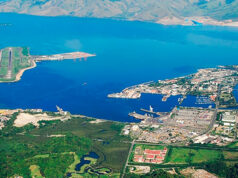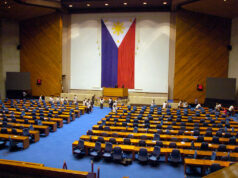Duterte to sign P4.5-T national budget next week — spokesman
PRESIDENT Rodrigo R. Duterte will sign the P4.5-trillion national budget for next year on Dec. 28, according to his spokesman.
“The signing is on the 28th and this will be done in Davao,” presidential spokesman Harry L. Roque told an online news briefing in Filipino on Tuesday.
Five congressmen and five senators would be present at the ceremonial signing, he said.
The President flew to his hometown of Davao City this week to spend the holidays there. The palace earlier said Mr. Duterte would review the measure for potential vetoes.
The bicameral conference committee increased the allocation for the health sector by 42% to P287.47 billion. The funds will go to the Department of Health (DoH), Philippine Health Insurance Corp. and healthcare personnel, among others.
Under the budget, P72.5 billion will be set aside for the implementation of a coronavirus disease 2019 (COVID-19) vaccine program. Of this, P2.5 billion is under the DoH, while the remaining P70 billion consists of unprogrammed funds.
The amount is lower than the Senate-approved P83-billion allocation for vaccines, which included P8 billion under DoH and P75 billion in unprogrammed funds for vaccine procurement, distribution and storage.
Lawmakers had worked to avoid a repeat of the 2019 budget scenario that led to the reenactment of the 2018 budget for more than four months. The delay stemmed from an impasse between congressmen and Budget officials, and later with the Senate.
The 2019 budget was also reenacted for less than a week in 2020, after President Rodrigo R. Duterte signed the 2020 budget only on Jan. 6.
The largest share of the 2021 budget goes to the education sector with P708.18 billion, in line with the Constitution. The education sector’s budget, however, was 6.12% lower than initially proposed.
The second-largest chunk goes to the Department of Public Works and Highways (DPWH) with P694.82 billion, up by 4.12%, as the government boosts infrastructure projects to drive the sluggish economy.
Economic output slumped by 11.5% in the third quarter after a 16.9% contraction in the second quarter pushed the country into its first recession in nearly three decades. — GMC



